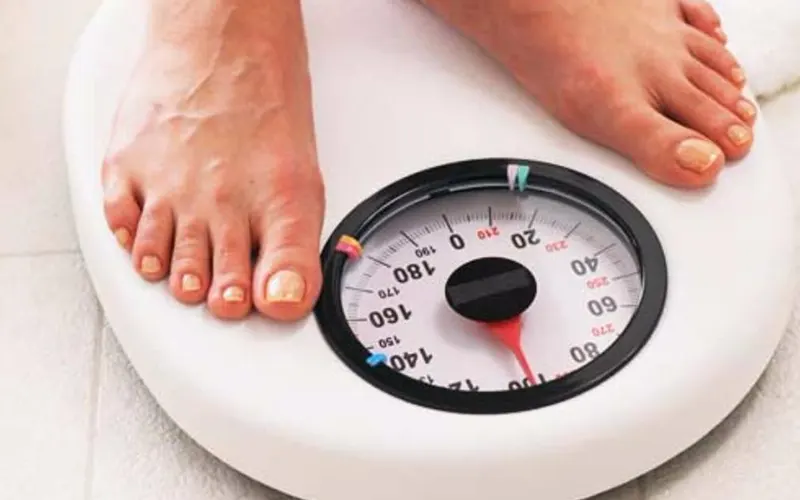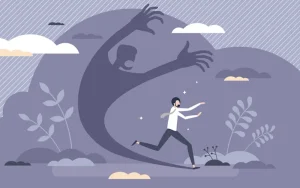During our initial meeting, Rose expressed strongly, “Please don’t take offense, but I believe I should manage my food and weight without therapy.”
Over time, Rose explored different methods to overcome her fixation with food and weight. Despite finding temporary relief at times, none of these approaches proved lasting. Instead, she often found herself returning to failed diets, leading to increased self-criticism and desperation. This raised the question: was there something Rose was overlooking?
Upon thoroughly examining Rose’s previous attempts at improvement, I scrutinized her various endeavors, including numerous diets, New Year’s resolutions, self-help literature, occasional workshops, and participation in Overeaters Anonymous groups. A discernible pattern emerged: each time she began feeling more confident and in charge of her weight, she would discontinue seeking support under the belief that she should handle her food and weight independently. While she managed to sustain positive momentum for a period, inevitably, she would regress, leading to profound feelings of self-doubt and disappointment. Engulfed in self-criticism, she continually vowed to do “better next time.” This repetitive cycle had taken a toll on her self-esteem, causing her to perceive herself as “a failure” and “out of control.” She had developed distressing habits, fixating on her weight and harboring resentment towards her body.
I refer to this method Rose employed as “band-aid treatment.” Instead of addressing the root cause of her struggles, she sought temporary relief to feel better. Seeking solace is natural, but if the core issue persists, it must be thoroughly examined and resolved; otherwise, it will resurface repeatedly. Rose’s challenge lay in her tendency to abandon support once she felt some relief, believing she should manage alone. This perpetuated negative cycles around her body and weight. To break free, she needed to interrupt these cycles and delve into the emotional factors driving them, requiring stability on the physical front first.
I shared my honest thoughts with her, expressing uncertainty about my ability to assist. I foresaw a scenario where she might feel better temporarily after a few sessions but fail to confront the underlying issue. Advising her to commit to one treatment method until achieving a solid recovery, I urged her to refrain from self-blame for her struggles. Emphasizing the necessity of ongoing support for lasting recovery, I provided guidance tailored to her situation.
Rose chose to test my recommendations. As expected, she initially experienced relief by stabilizing her eating and exercise habits. Typically, she would have halted treatment at this stage, feeling better. However, she decided to maintain our weekly sessions to explore whether sustained support could aid her recovery. This marked the beginning of intensive work, as stabilizing her physical condition allowed us to delve deeper into the emotional aspects driving her negative cycles around body and weight.
Rose demonstrated remarkable dedication to her journey of self-discovery. She examined the deeply ingrained beliefs instilled by her family, which tied her self-worth to her appearance. Delving into the pervasive messages that fueled her fears of rejection and unworthiness if she didn’t conform to certain beauty standards, she confronted the role of food as a substitute for the emotional support she lacked in her relationships. Rose also confronted her tendency to isolate herself due to the fear of judgment from others. She acknowledged how food had become a coping mechanism, whether through overeating or undereating, to numb or disconnect from her pain. I admired Rose’s courage and commitment to delving into these deeply personal issues.
While individual therapy proved beneficial for Rose, I encouraged her to consider joining a support group or attending workshops. Recognizing the importance of integrating external support into her recovery journey, I emphasized the value of hearing other women’s stories of recovery to combat the sense of isolation she often felt. Although Rose understood this conceptually, she struggled to internalize it emotionally. Despite being able to open up during our sessions, I knew that her journey to full recovery also required seeking emotional support beyond our therapy sessions.
Fortunately, in the Bay Area, there is a wealth of support groups and workshops designed to empower women to develop healthier relationships with their bodies and food. Rose opted to join a group that incorporated creative and expressive art activities, tapping into her childhood love for drawing. As she engaged in artistic expression, she discovered profound insights about herself, despite feeling vulnerable. Witnessing other women in the group share their own transformative experiences encouraged Rose to open up and receive support in areas where she once sought solace in food.
Why is support so crucial? In Rose’s case, it provided a platform to delve into the deeper emotional roots driving her struggles with food, weight, and body image. Extending her personal journey into her community allowed her to feel embraced and supported, which was vital given the societal pressures that often fuel disordered eating and negative body image. Such patterns are learned behaviors influenced by social, cultural, and familial messages that portray food as the enemy and our bodies as battlegrounds. To counteract these damaging narratives, we require ongoing support and positive reinforcement focused on self-care, self-love, and holistic health. Building a supportive community that promotes these affirming messages is key to sustaining lasting recovery.
In conclusion, I want to stress the importance of seeking support as early as possible. From my experience, women who try to tackle their struggles alone often find themselves struggling the most. Disordered eating can lead to disordered thinking, making it difficult to break free from harmful patterns. Unfortunately, I’ve observed that solitary efforts rarely lead to successful recovery; instead, they often deepen the struggle with one’s body and cravings. Years later, many regret not seeking support sooner, realizing the energy wasted on this painful battle. Don’t wait until it’s too late! Asking for help and support isn’t a sign of weakness; it requires immense strength and courage. By surrounding yourself with a supportive community, you’ll enhance the longevity of your recovery journey and feel more empowered along the way!
Read More :Lightweight gloves can help reduce tremors in Parkinson’s disease










